Colorado birth control scheme causes drop in teen pregnancy
- Published
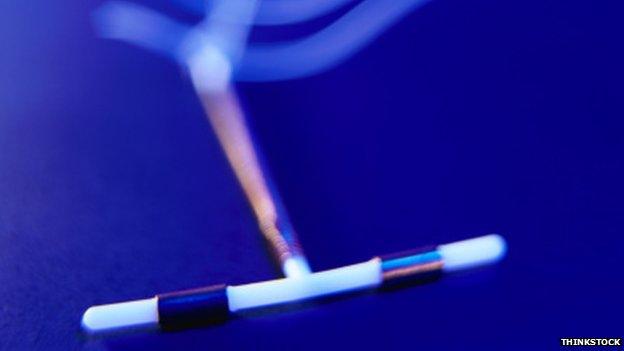
An intrauterine device is very effective at preventing pregnancy but has a high up-front cost
What impact would giving teenagers free birth control have on American society? A ground-breaking programme in Colorado aimed to reveal just that, and has led to a dramatic reduction in the rate of teenage pregnancy and other benefits as a consequence.
But moral opposition to the scheme, and the nature of the project's funding - a large anonymous donation - leaves it unclear whether it could work across the country.
Dianzu Mosqueda Salinas is a young woman working at a family planning centre in the Colorado town of Boulder.
In 2010, she had walked into the very same centre as a nervous teenager, curious about birth control options.
"One of my friends from school had an unplanned pregnancy, and at the time I was studying and was not looking to be pregnant," Salinas tells me.
"A 20-minute conversation turned into me having an insertion that day."
Salinas neither had to tell her parents nor had to find the money for the birth control device, all because of a programme started five years ago.
In 2008, an anonymous donor made a $23m (£13.7m), five-year commitment to provide long-term contraception such as intrauterine devices (IUDs) or implants for teenagers who needed them, for free or at very low cost.
The state's health department rolled out the programme, called the Colorado Family Planning Initiative, through clinics that were already offering family planning services.
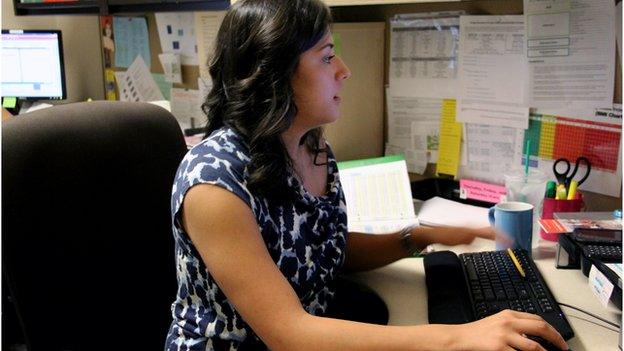
Dianzu Mosqueda Salinas now works at the same clinic where she received birth control free of charge
In less than five years, the Colorado teenage birth rate has declined by 40%.
"We really strongly believe that adolescents need access to contraception," says Liz Romer, a family planning nurse at Denver Children's Hospital.
"It needs to be readily available, the same day, and it needs to be free."
Romer says IUDs normally cost between $500 and several thousand dollars up front.
She says that is prohibitive to teenagers who either cannot pay themselves, who feel they cannot ask their parents to pay for contraception, or whose families could not afford it in any case.
When Greta Klinger, the director of the programme, got the first results back about how the initiative was working, she and others were stunned.
"The demographer whom I worked with on the analysis of the data kept coming into my office and saying, 'Look at this, I've never seen this before.'" Klingler says.
"It's really incredible. From the public health perspective, it's pretty rare to have a programme that produces such dramatic results."
The US birth rate for teenagers is decreasing across the country, but Colorado has seen a quicker drop - between 2008-12, it jumped from 29th-lowest teen birth rate in the nation to the 19th lowest.
Not everyone is happy. There is fierce opposition to the idea of offering birth control to teenagers from groups like Colorado Right to Life.
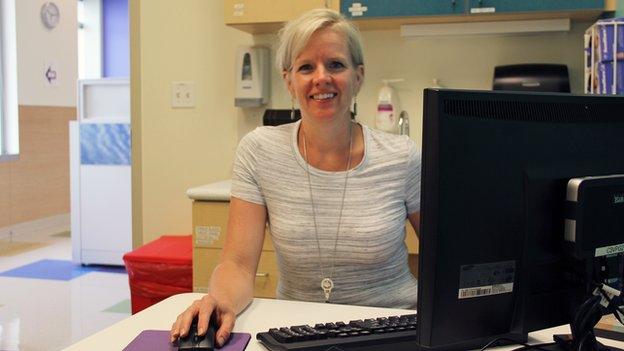
Liz Romer said getting contraception to teenagers the same day they make their appointment is crucial
"When you teach children that they're animals - that they have evolved from pigs and dogs and apes - then they act like animals," says Bob Enyart, a spokesman for the group.
Enyart says offering IUDs and other devices sends the message that teenagers can "have all the sex you want". He believes it has led to the spread of sexually transmitted diseases (STDs) and is immoral.
"We are made in God's image, and God's likeness and for 13-, 14-, 15-year-old girls to be having sex is destructive for them," he says.
Salinas, who got her contraceptive implant in 2010, says her peers who are on birth control are more likely to be relaxed about having sex. That, she says, was the point.
But she also says that those who, like her, have taken advantage of the contraceptive scheme have also been exposed to more information about the risks and ways to prevent STDs, through visits with a family planning practitioner.
Klingler believes the programme's importance is much broader.
"We had a young woman come into one of our clinics - she was 17. Her mom and all of her sisters had been pregnant as teens and she didn't want that to happen, so she came in and got an IUD fitted straight away.
"She came back three years later. She had been the first in her family not only to graduate high school but was now enrolled in college.
"She said this had been a life-changer for her."
Those involved in the project say it is showing the rest of the country the huge benefits of offering birth control for free - to public health and to the economy - both in savings to government-funded healthcare schemes and gained productivity of those who did not get pregnant as teenagers.
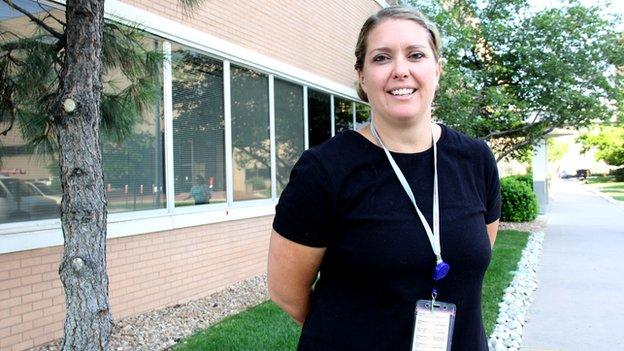
Greta Klingler says the programme has changed lives - and saved Colorado money
That was the reason the anonymous donor chose to invest in the vision, Klinger says.
Other states are certainly taking notice of what Colorado has achieved.
But to some extent the state was able to quiet conservative opposition because the scheme relied on private money.
Using public funds to give teenagers free contraception in America could well be a very different prospect.
- Published3 February 2014
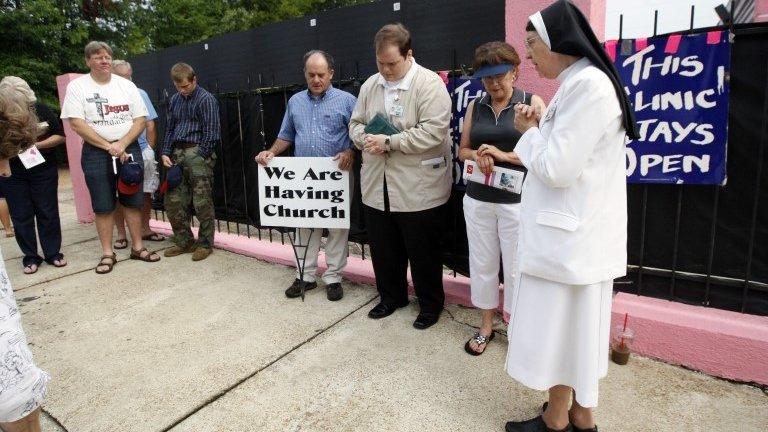
- Published2 November 2012
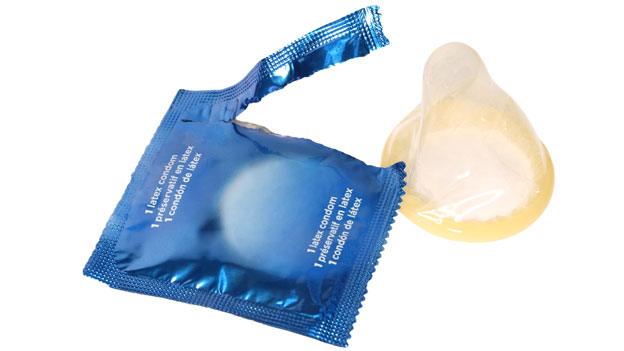
- Published25 March 2014
